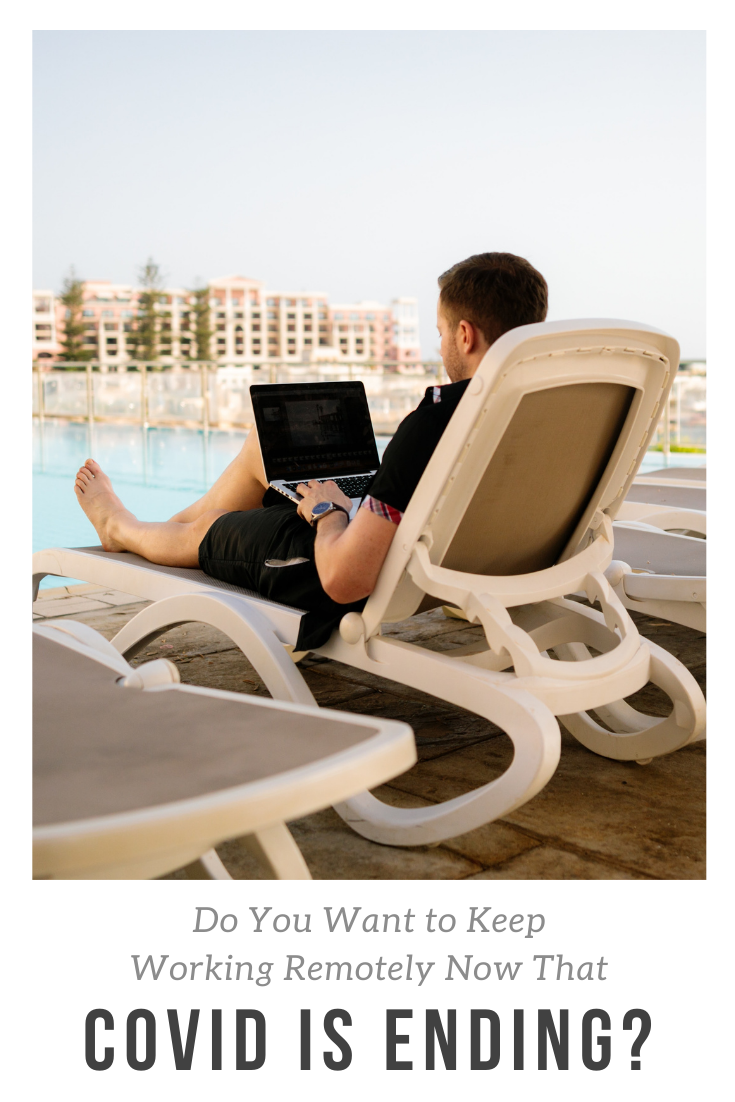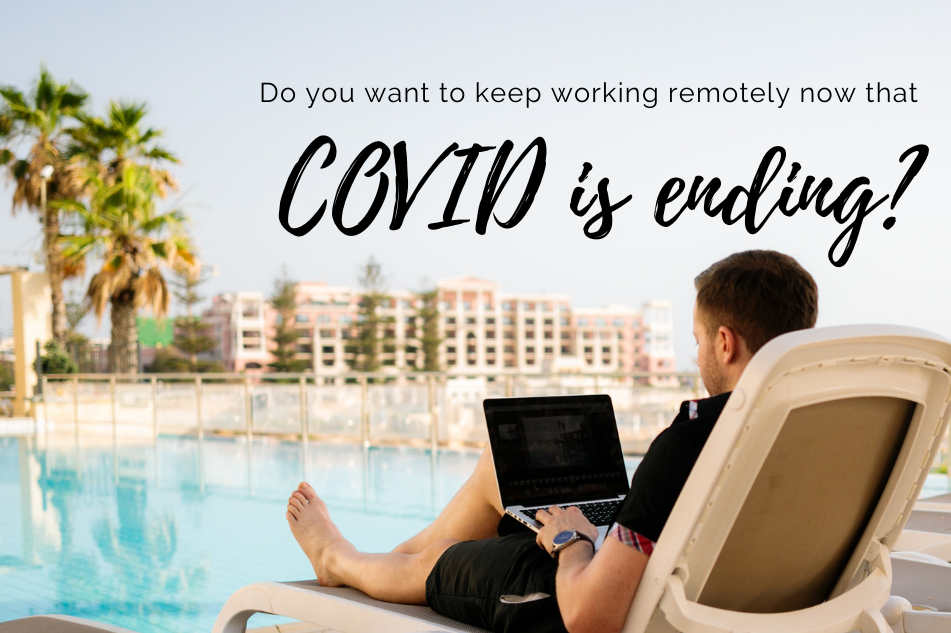|
|
In recent weeks, I’ve had several people contact me to begin a new job search. The reason they’re now looking is because their current company no longer needs to enforce remote work, due to the decline of COVID. Therefore, employers are now requiring employees to return to the office. For those who’ve enjoyed working remotely, they’re considering a career change to a company that embraces this type of flexibility.
Of course, some people are looking forward to getting back to the office full-time. They’re not cut out for working from home. It’s definitely not for everybody. However, even those who are looking forward to returning to the office have said they’d still like to work remotely, at least one or two days a week.
I had a feeling this would happen. I get it. Since I started working from home, I’ve never had a desire to return to an office setting.
This is why I wrote a post at the beginning of the pandemic, about how you can use a temporary remote work situation, as an opportunity to convince your company to continue offering flexible work locations, even after the pandemic.
What I didn’t anticipate, and neither did anyone else at the time, was just how long required remote work would last. Remember when the idea of being in lock down for two weeks sounded like an eternity? Who would’ve thought it would last for over a year?!
How to keep working remotely
If you’re someone who’s grown accustomed to this new way of working and don’t want it to end, you can still try some of the tips I previously shared to convince your company to continue offering remote work options.
Let’s see what this looks like in a post-COVID work-place.
Point out the obvious
Companies have no doubt seen the positive impact remote work has had on their bottom line. This includes:
- Savings from lowered overhead, such as reduction in operating costs, rent, utilities, travel, etc.
- Expanded talent pool, since geography no longer limits their access to good workers.
- Better employee morale.
- Less attrition.
Remind your employer of this! Sometimes you have to point out the obvious to be heard. And you don’t have to do so in a way that sounds like you’re being insubordinate. Instead, ask your employer what the positive impacts have been. And ask if those things outweigh the negative impacts. Getting your employer to say out loud what’s working reiterates it for him or for her.
Point out the not-so obvious
It may not be so obvious to your employer the positive impact remote work has had on an individual level. You’ll need to show how the positive impact you’ve personally experienced also impacts the company’s bottom line.
Can you show how you have:
- Become more productive?
- Had less distractions and therefore had less errors in your work?
- Been less sick and therefore have reduced your absenteeism?
- Had happier clients and customers due to a better work-life balance of your own?
If you haven’t tracked this as I previously suggested at the beginning of the pandemic, try your best to go back and look at anything quantifiable, to see if your numbers have improved since working remotely. Put this into a report to share with your higher-ups. The data will speak volumes!
Consider other companies
Even if you don’t succeed at convincing your company to continue remote work, there is some good news. Several other companies are now likely to offer remote work options, based on the benefits they’ve seen in the past year. Therefore, it may be time to look into changing companies.
However, before doing so, I suggest getting some career coaching. This will help you sell yourself in interviews with other companies. It will also teach you how to get the truth about a potential company’s culture, before you change jobs.
Click here to schedule a complimentary initial consultation.
Related posts
- How to Improve Your Work Life With Coronavirus Prevention
- How Has COVID-19 Changed Your Career Plan for the Better?
- Online video course: The 3 Super Powers of Successful Job Seekers






